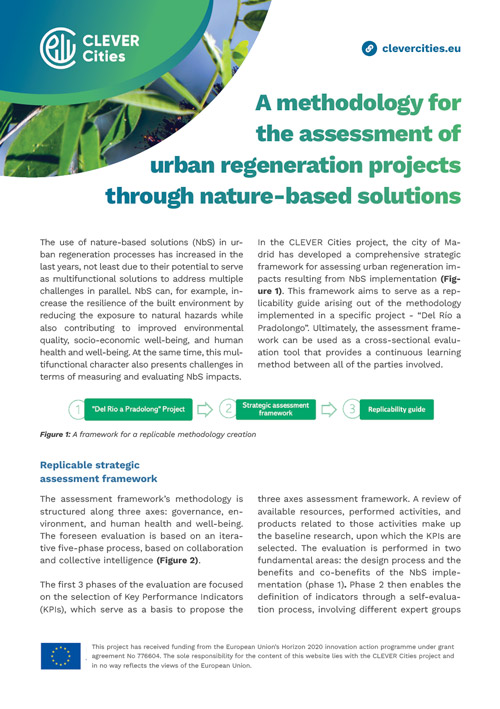 Assessing urban regeneration impacts
Assessing urban regeneration impacts
A methodology for the assessment of urban regeneration projects through nature-based solutions
The use of nature-based solutions (NbS) in urban regeneration processes has increased in the last years, not least due to their potential to serve as multifunctional solutions to address multiple challenges in parallel. NbS can, for example, increase the resilience of the built environment by reducing the exposure to natural hazards while also contributing to improved environmental quality, socio-economic well-being, and human health and well-being. At the same time, this multifunctional character also presents challenges in terms of measuring and evaluating NbS impacts.
In the CLEVER Cities project, the city of Madrid has developed a comprehensive strategic framework for assessing urban regeneration impacts resulting from NbS implementation. The framework’s methodology is structured along three axes: governance, environment, and human health and well-being. The foreseen evaluation is based on an iterative five-phase process, based on collaboration and collective intelligence (Figure 2).
More details about the full
framework can be found here
